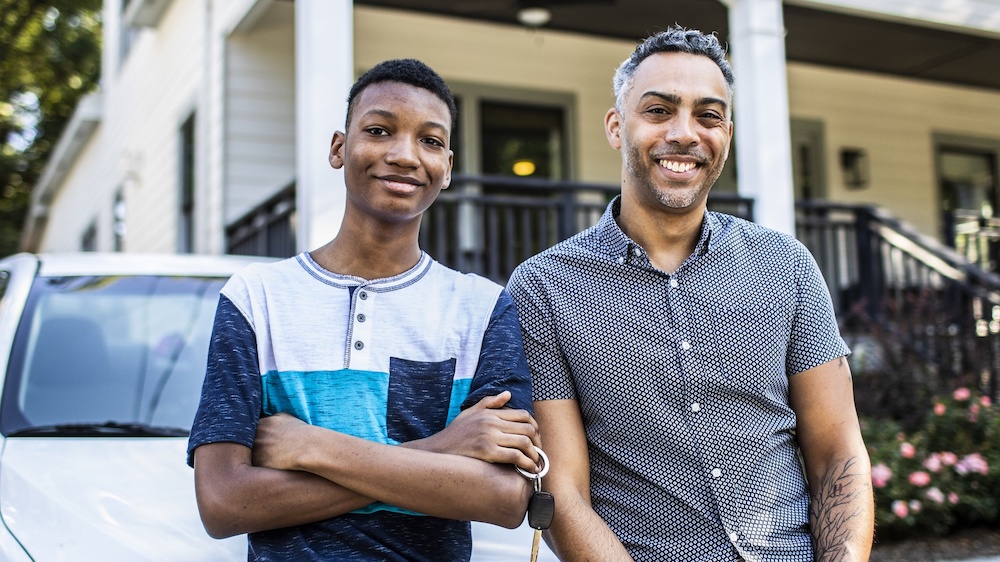If you’re interested in sharing your opinion on any cultural, political or personal topic, create an account here and check out our how-to post to learn more.
____
Now, more than ever before, Black Americans are in a position to make a lasting impact on future generations. And I don’t just mean just in the form of our knowledge and experience; I’m talking about a real, tangible, in-your-pocket, provide-a-better-life-for-future-generations impact. Per the New York Times, in 2021 Black households still only have a mere 12 cents for every dollar of a typical white household. Estate planning presents a prime opportunity to work on closing this gap.
There’s no denying that, historically, estate planning has had an inclusivity problem. The entrenched belief that estate plans are only for wealthy, white males has hindered generations and disproportionately impacted people of color and other minority groups. But research shows that’s changing. We all have an opportunity to leave a legacy that can set future generations up for success in ways inaccessible to previous generations.
Right now, we are potentially missing out on the largest wealth transfer in history: over $68 trillion in money and assets are at stake, and 3 out of 4 Black Americans are unprepared. Everything you’ve worked for, everything you’ve earned and created has the ability to benefit future generations. This impact won’t happen by chance, and it won’t happen without your attention and planning.
You’ve probably heard this all before, but let’s recap: An estate plan ensures your medical, financial and guardianship decisions will be handled by the person(s) you choose and trust. Your plan ensures you have an advocate acting on your behalf, carrying out your wishes and directions as you intended.
Conversely, there are forced alternatives to not having an estate plan. There is already a default plan in place in the event of your passing or incapacitation; it’s determined by the state in which you reside, and serves as the precedent for how decisions are made and how your assets will be distributed on your behalf. Dying without an estate plan, referred to as dying intestate, means the most crucial decisions — including who will care for your children, aged parents, pets or other dependents — will be made without your input. Further, your family will be forced to endure a lengthy and costly legal process and incur potentially crippling legal expenses to regain control of your finances and assets.
If you don’t have an estate plan, you’re not alone. You’ve undoubtedly seen headlines about Chadwick Boseman and Prince dying without Wills, while Aretha Franklin passed in 2018 with multiple contradictory documents, leaving her family sorting through the conflicting legalities over three years later.
It doesn’t have to be like this. A 2021 survey by Caring.com estimates only 27% of Black Americans have a Will, the central document of an estate plan. While critical and an important first step, a Will (also known as a Last Will and Testament) is only one component of an effective estate plan, and offers no protections until after you’ve passed. Other documents, including a Living Will (sometimes referred to as an Advanced Care Directive), Durable Power of Attorney (POA), Health Care Power of Attorney (HCPA) and a Living Trust, can ensure your wishes are honored prior to your death.
The recent developments in digital estate planning present unprecedented opportunities for Black Americans to create a lasting footprint for future family generations and beyond. According to New York-based estate-planning lawyer Lori Anne Douglass, with a bit of home-focused activism, Black Americans have the potential of being the single wealthiest minority community in the history of this country. Now, more than ever, there are resources that are simplifying and democratizing what has become an increasingly archaic and expensive process.
Just as TurboTax and TaxAct changed the way we think of filing our taxes, this is the estate planning revolution. No more costly consultations, predatory lawyers or unnecessary fees. With self-guided, survey-style platforms, robust educational resources and backed by an expansive legal network, companies like Boston-based Gentreo are leading the way, bringing estate planning and education into the homes and financial planning discussions of those who have been historically overlooked or otherwise excluded.
It’s time for Black America to look to the future and prepare for it with estate planning. We have come too far to incur the needless losses, emotional turmoil and familial chaos that estate plans can prevent. We owe it to future generations to seize this opportunity; to provide for a future that has previously been virtually inaccessible to Black American families. There has never been a better time to secure your future by protecting what matters most.
____
Brickson Diamond is the Co-Founder and Board Chair of Black House Foundation, CEO of Big Answers, LLC and board member of Gentreo. He has over 15 years of experience in helping Black and underrepresented communities find pathways into entertainment, technology and investment management.
